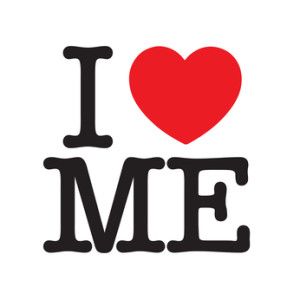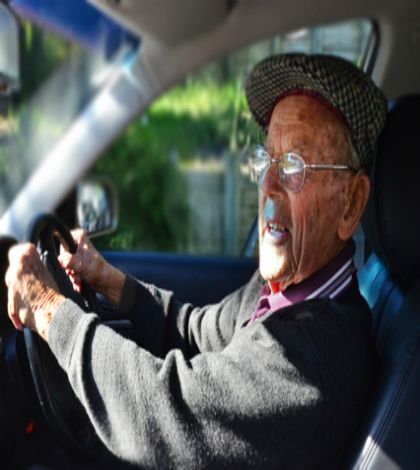Top Tip for Traveling Seniors: Pack Your Personal Health Information with Eric Michaels - Episode 24

In Episode 24 of our informative series, we're thrilled to welcome Diane Carbo RN, CEO of MyVitalAlert.com and CareGiverRelief.com. Diane's passion for assisting seniors in prolonging their independence shines through as she discusses a crucial travel tip for seniors: "Pack Your Personal Health Information." Joining the eHealth Radio and Senior Care and Travel Health Care Channels, Diane reveals the importance of this tip and the innovative medical ID system her team has developed.
Diane Carbo: This is the e-health radio network, your source for health advice on demand. And now your host, Eric
Eric Michaels: Michaels. This is Eric Michaels. And once again, you have tuned into the e-health radio network and the health senior care and travel health channels. Make sure you connect with us on Facebook to receive the latest programming for your convenience.
Eric Michaels: Simply Addie health radio. Today we are speaking with Diane carbo are in and see, oh, at my vital alert.com and caregiver relief. Dot com Diane works with seniors to remain at home for as long as possible. She and her team identified a need for a simple to use medical ID system that provides specific health information for aging seniors.
Eric Michaels: They have developed the next generation medical ID system today. Diane is going to give the most important tips for traveling. Seniors. Do not forget to pack your personal health information. Diane, certainly a privilege to have you with us today on the health radio. I’m excited
Diane Carbo: to be here with you this afternoon and
Eric Michaels: the pleasure, certainly hours looking forward to hearing your message here as well.
Eric Michaels: Tell me why personal health information is so important.
Diane Carbo: Actually, Eric, having your personal health information should be with you at all times. And that would be the ideal scenario, but most seniors feel that when they’re close to home, they have somebody that may be able to relay the vital medical information for them.
Diane Carbo: If they’re not able to communicate that information at any time, I don’t know if you know this Eric, but the average senior over 65 years of age has an average of three chronic health conditions and takes at least three to 10 prescriptions daily. Most doctors tell me that people come in, their patients can’t remember their prescription information and most have difficulty recalling all their past or medical or surgical information.
Diane Carbo: We all want to be safe and healthy while traveling and having your specific medical information with you helps provide unfamiliar healthcare professionals important and specific information that can help avoid misdiagnosis and unnecessary, costly testing. In an emergency situation when minutes count even seconds count accidents can occur when we least expect them.
Diane Carbo: So it’s just important to be prepared. I couldn’t
Eric Michaels: agree more with that. What is considered important? Personal information?
Diane Carbo: I think personal health information is important medical information that is specific to each individual, your health history, your allergies, your list of medications depending on your health and medical history, it may include up-to-date tests or even laboratory.
Diane Carbo: You may have an implanted device such as a fibrillation or an insulin pump, or be on medication that requires monitoring such as blood thinners or seizure medications. The information you can, you include can help you get the care you need in a timely fashion and it’s care the way you need it.
Diane Carbo: And at the appropriate level. So it’s about your specific medical information can help you avoid again, the unnecessary and costly tests and even misdiagnosed.
Diane Carbo: According to the American health information management association, the personal health information you carry with you when you travel should include emergency contact information. Now, this should be someone who maybe is not traveling with you and a person who has access to all your medical and legal information such as your power of attorneys.
Diane Carbo: Directives, it should also include a list of your doctors and their contact information. A list of your medical conditions and including any past medical conditions that are, maybe revelent like you may have had a total hip at one time or a past history of a heart attack and medications, a list is really important.
Diane Carbo: And the doses that you take, including prescription and over-the-counter medication. And more importantly and most importantly is allergies. Make sure you include all your allergies to food or drugs on that list. Now, if you’re traveling outside the U S I’m going to suggest that you may want to look into healthcare insurance options when you were born.
Eric Michaels: Certainly helpful information today, we are joined by Diane carbo, our Inn and CEO of my vital alert.com and caregiver relief.com. Diane works with seniors to remain at home for as long as possible here on e-health radios, health, senior care and travel health channels apart of the e-health radio network.
Eric Michaels: Diane, who do you share your personal medical information with?
Diane Carbo: Each individual should make that decision whom they want to share or not share their personal health information with. And that’s so important to make those preferences known to the nurses and doctors who were treating you even in an emergency situation.
Diane Carbo: This way the healthcare providers will honor your wishes and share only relevant information with the person you trust. To help you make decisions about your health care. There should be a designated emergency contact so that they can provide your personal health information in the event. You cannot speak for yourself.
Diane Carbo: The one major problem I see Eric with people is, and it occurs over and over again. Is that the emergency contact? Person does not have the information often needed such as a list of present medications list of chronic conditions or even allergies. So I strongly suggest when you designate a person as your emergency contract contact, Please supply them with the information that I suggested it saves time and it can save your life
Eric Michaels: most definitely.
Eric Michaels: How should a person store their personal health information?
Diane Carbo: I think the biggest concern of all is safety and maintaining privacy. There are so many ways you can safely store personal health information in a practical and convenient. So even if you have an extensive medical and surgical history, you don’t need to have a lot of bulky medical records to take with you.
Diane Carbo: And I will tell you that traditional medical ID systems like bracelets have limited space and have the inability to provide information specific to you. So with my vital alert, we have created a. Platform so that even if you don’t have a smartphone, it can be used. It is a simple, secure cloud-based platform that allows access via a medical ID, bracelet, necklace, key fob, or laminated card to alert first responders, and it allows ready access to contact your emergency contacts via one button to touch a phone call or a text and allows you to determine what information you want to make available.
Diane Carbo: I think that you want to provide a safe and secure system for storage to give you peace of mind, a system that allows you to turn off access to your material or information with one click. So if you feel like your bracelet or your card has been lost, you can just go into your system and turn it off and know that nobody has access to that information.
Eric Michaels: Sometimes it is very clear that most people don’t think about this. And this is certainly brought attention to not only me personally, but those listening in without a question. So certainly appreciate these valuable tips. In conclusion, any closing thoughts or a final tip for the listeners today, along the lines of what we have been covering.
Diane Carbo: I think taking your personal health information with you as an important step in ensuring your safety while you were traveling away from home. So before you worry about how many carry ons you should bring be ready for the road ahead by ensuring that you are carrying your personal health information with you, your life may depend on it.
Diane Carbo: And my vital. Specifically designed to save your life in an emergency and ensure that you were quickly reunited with your loved ones.
Eric Michaels: Once again, Diane, we thank you for joining us and thanks so much for spending a moment with us here today on e-health radio. Thank you Eric, for your time and yours as well.
Eric Michaels: We’ve been speaking with Diane carbo in and see, oh, of my vital alert.com and caregiver relief.com. Diane works with seniors to remain at home. For as long as possible, she and her team identified a need for a simple to use medical ID system that provides specific health information for aging seniors, and they have developed the next generation medical ID system.
Eric Michaels: And for more information visit either my vital alert.com as well as caregiver relief.com. And this has been Eric Michaels and you’ve been listening to e-health radio. And the health senior care and travel health channels, a part of the health radio network. And we do thank you for listening. And until next time, enjoy
Diane Carbo: thanks for tuning in to the e-health radio network for more information, or to subscribe to this podcast.
Diane Carbo: He health radio
Eric Michaels: network.com.
Conclusion:
As we wrap up this enlightening episode, it's clear that Diane Carbo's insights have shed light on a topic that often goes overlooked – the significance of carrying personal health information while traveling, particularly for seniors. With a wealth of knowledge and experience, Diane's dedication to empowering seniors to maintain their health and independence is truly commendable. Remember, your personal health information is your lifeline, ensuring your safety and well-being, especially when you're away from home. Diane Carbo and her team's commitment to providing simple and efficient solutions through MyVitalAlert.com and CareGiverRelief.com promises a brighter and safer future for seniors on the move. Don't miss out on these essential tips and resources to enhance your travel experiences and overall well-being.
You might also like this article:








